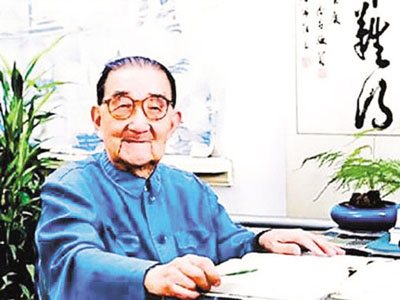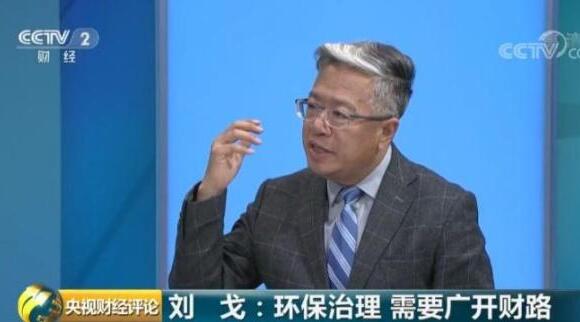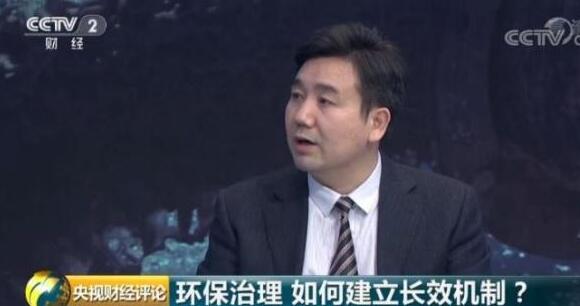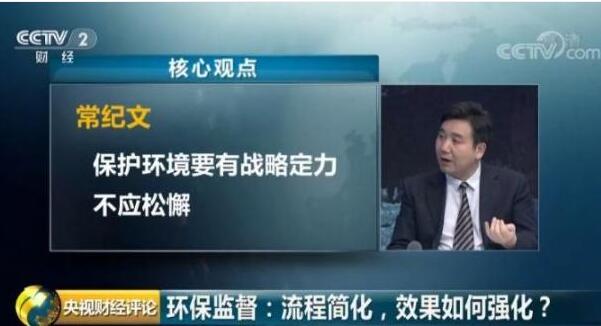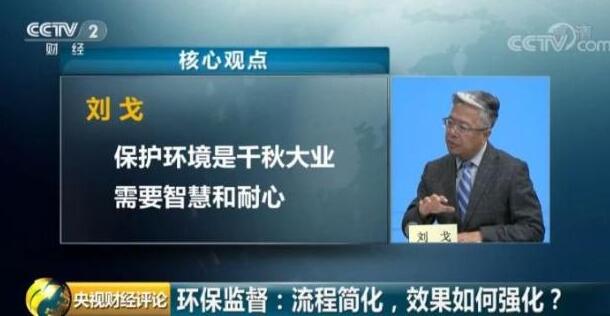The Central Committee of the Communist Party of China’s Decision on Deepening the Reform of Party and State Institutions, which was deliberated and adopted at the Third Plenary Session of the 19th CPC Central Committee, pointed out that to deepen the reform of Party and State institutions, it is necessary to strengthen the overall leadership of the Party. To study and implement the Decision, we must accurately grasp the red line of upholding and strengthening the Party’s overall leadership, deeply understand that upholding and strengthening the Party’s overall leadership is the core task and key to promote the reform of the Party and state institutions, implement the Party’s leadership over all work throughout the whole process of reform, and build a Party leadership system that takes the overall situation into consideration and coordinates all parties, so as to provide a strong institutional guarantee for the long-term governance of the Party and the long-term stability of the country.
First, adhering to the overall leadership of the party is an important principle that must be adhered to in deepening institutional reform.
The "Decision" profoundly summarizes the successful experience of Socialism with Chinese characteristics’s political construction and clarifies four principles that must be followed in deepening the reform of the party and state institutions. The first one is "upholding the overall leadership of the party". Only by grasping and implementing this principle can we ensure the correct direction of the reform of the party and state institutions.
(1) the Communist Party of China (CPC)’s leadership is the most essential feature and the greatest institutional advantage of Socialism with Chinese characteristics. Since the 18th National Congress of the Communist Party of China, the CPC Central Committee with the Supreme Leader as the core has profoundly summarized the theory and practice of China’s revolutionary construction and reform in the historical process of commanding great struggles, great projects, great undertakings and great dreams, and clearly put forward that the leadership of the party is the most essential feature of Socialism with Chinese characteristics and the greatest advantage of the Socialism with Chinese characteristics system. This important conclusion has deepened the party’s leadership position and role from the inevitability of historical development and practical development to the inevitability of road development and system development, deepened the understanding of communist party’s ruling law, the law of socialist construction and the law of human social development, and deepened the understanding of Socialism with Chinese characteristics’s essence. It is the most important understanding achievement and the most fundamental experience summary of our party and China people in upholding and developing Socialism with Chinese characteristics, and it is road confidence, theoretical confidence and self-confidence. To uphold and improve the Socialism with Chinese characteristics system, the most crucial and core thing is to uphold and strengthen the Party’s overall leadership, better embody this most essential feature and give full play to this greatest advantage.
(2) Upholding the Party’s leadership over all work is an inevitable requirement for upholding and developing Socialism with Chinese characteristics in the new era. Party, government, military and civilian studies, east, west, north and south, the party is the leader of everything. The General Secretary of the Supreme Leader put forward the basic strategy of Socialism with Chinese characteristics in the new era. The "first insistence" of the "14 Persistences" is to uphold the party’s leadership over all work. China is a socialist country under the people’s democratic dictatorship led by the working class and based on the workers’ and peasants’ alliance. Our party is the vanguard of the working class, the people of China and the Chinese nation, representing the fundamental interests of the overwhelming majority of the people, and has no special interests of its own. Based on the nature of our country’s national system and party, it is proper to strengthen the overall leadership of the party. Our party has been in power for 69 years. After long-term practice, especially since the 18th National Congress of the Communist Party of China, we have clearly adhered to the party’s overall leadership and strictly managed the party in an all-round way, leading the Chinese nation to a great leap from standing up, becoming rich and becoming strong. This fully proves that the system and mechanism embodying the party’s overall leadership are effective and useful, and can best mobilize the enthusiasm, initiative and creativity of the broad masses of people. At present, China’s development is in a promising historical opportunity period. To seize the historical opportunity and realize the great dream, we must unswervingly uphold and strengthen the overall leadership of the party, constantly improve the institutional arrangements for upholding the overall leadership of the party, and vigorously promote the modernization of the national governance system and governance capacity. To sum up, adhere to the party’s leadership over all work,It is the demand of the people, the demand of practice and the demand of the times.
(3) Upholding and strengthening the overall leadership of the Party is the primary task and fundamental guarantee for deepening the reform of the Party and state institutions. The party’s overall leadership is concrete, not empty or abstract, and must be reflected in all aspects of governing the country, in the design, arrangement and operation of the institutions, systems and systems of state power, and in ensuring and realizing the political, ideological and organizational implementation of the party’s leadership. The "Decision" focuses on further institutionalizing the position and role of the Party as the highest political leading force, and regards upholding and strengthening the overall leadership of the Party as the primary task of this institutional reform. To deepen the reform of the party and state institutions, promote the modernization of the national governance system and governance capacity, and promote the Socialism with Chinese characteristics system to be more mature and more stereotyped, we must move in the direction of upholding and strengthening the party’s overall leadership, and strive to implement the party’s overall leadership in place. The reform of the party and state institutions is a political system reform that has a bearing on the overall situation and should be understood and grasped politically. To ensure the correct direction of reform and the smooth progress of various tasks, we must give full play to the core role of the party in overall planning and coordinating all parties, and earnestly put the political theme of upholding and strengthening the party’s overall leadership throughout the whole process of reform.
(4) To uphold the overall leadership of the Party, the most fundamental thing is to uphold the authority of the CPC Central Committee and centralized and unified leadership. Centralized and unified leadership by the Party Central Committee is the highest principle of the Party’s leadership and the most fundamental political rule. The 19th National Congress of the Communist Party of China clearly pointed out that it is the primary task of the party’s political construction to ensure that the whole party obeys the Central Committee and uphold the authority of the Party Central Committee and centralize and unify leadership. In the big chess game of the national governance system, the CPC Central Committee is the "handsome" in the military account. To build and improve the Party’s leadership system and national governance system, we must adhere to the authority and centralized and unified leadership of the CPC Central Committee as the fundamental point, further establish and improve the institutional mechanism for strengthening centralized and unified leadership of the CPC Central Committee, ensure the unity and unity of the whole Party and the unity of actions, and ensure the rapid and effective implementation of the decision-making arrangements of the CPC Central Committee. To deepen the reform of the Party and state institutions, the task is arduous and far-reaching, which affects the whole body. We must firmly establish political consciousness, overall situation consciousness, core consciousness and conformity consciousness, resolutely safeguard the core position of the Supreme Leader General Secretary in the CPC Central Committee and the whole party, resolutely safeguard the authority and centralized and unified leadership of the CPC Central Committee, consciously maintain a high degree of ideological and political unity with the CPC Central Committee with the Supreme Leader Comrade as the core, and carry out all the established tasks firmly and forcefully in accordance with the unified arrangements of the CPC Central Committee.
Second, improve the institutional arrangements for adhering to the party’s overall leadership
Focusing on ensuring the full coverage of the party’s leadership and ensuring that the party’s leadership is stronger and stronger, the "Decision" puts forward that strengthening the party’s leadership in all fields and aspects of work is the primary task of deepening the reform of the party and state institutions, and makes comprehensive arrangements and strategic arrangements for optimizing the party’s organizational structure and improving the system of adhering to the party’s overall leadership.
(1) establish and improve the party’s leadership system and mechanism for major work. The party’s leadership system and mechanism for major work plays a leading role in the overall leadership system arrangement of the party. Things are in all directions, and they should be in the center. To strengthen the party’s overall leadership, we must first strengthen the party’s centralized and unified leadership over major work involving the overall situation. The establishment of decision-making and deliberation coordination institutions by the CPC Central Committee is an effective system design to strengthen the party’s leadership over major work. As early as 1958, the CPC Central Committee established leading groups in finance, politics, law, foreign affairs, science, culture and education. Comrade Mao Zedong pointed out that these groups belong to the CPC Central Committee and the major policies are in the Politburo. Since the 18th National Congress of the Communist Party of China, the CPC Central Committee with the Supreme Leader as the core has further strengthened its centralized and unified leadership over major work involving the overall situation, and successively established the Central Leading Group for Comprehensively Deepening Reform, the Central National Security Council, the Central Leading Group for Cybersecurity and Informatization, and the Central Military Commission for Deepening the Reform of National Defense and the Army. These decision-making and deliberation coordination bodies of the CPC Central Committee have played a very important and key role in promoting the historic achievements and changes in the cause of the party and the state. The "Decision" puts forward the principle requirements for establishing and improving the party’s leadership system and mechanism for major work, clarifies the decision-making and deliberation coordination body of the CPC Central Committee, carries out work under the leadership of the Political Bureau of the Central Committee and its Standing Committee, and bears the important responsibility of top-level design, overall layout, overall coordination and overall promotion of major work. The "Decision" also affects other deliberative and coordinating bodies, party committees (party groups) of various regions and departments.Improve relevant institutional mechanisms and put forward clear requirements. These institutional arrangements and principle requirements fully reflect our party’s accurate grasp of China’s national conditions and deepening understanding of the operating rules of state power, which is conducive to maintaining the authority of the CPC Central Committee and centralized and unified leadership from the system, and is conducive to ensuring the smooth implementation of the Party Central Committee’s decrees and efficient work.
(2) Strengthen the leading position of Party organizations in organizations at the same level. Straightening out the relationship between the Party’s organizations and other organizations and strengthening the leading position of the Party’s organizations in organizations at the same level is an important guarantee to achieve full coverage of the Party’s leadership. In the report of the 19th National Congress of the Communist Party of China, the General Secretary of the Supreme Leader pointed out that in China’s political life, the Party is in a leading position. Strengthening the centralized and unified leadership of the Party and supporting the NPC, the government, the CPPCC, the courts and procuratorates to perform their functions, carry out their work and play their roles in accordance with the constitution are unified. Since the 18th National Congress of the Communist Party of China, it has become an important institutional arrangement for The Politburo Standing Committee (PSC) to regularly listen to the work reports of the leading groups of the National People’s Congress Standing Committee (NPCSC), the State Council, Chinese People’s Political Consultative Conference, the Supreme People’s Court and the Supreme People’s Procuratorate and the work reports of the Central Secretariat, which has a very important demonstration significance for the whole party. The "Decision" clearly states that party committees (leading groups) established in state organs, institutions, mass organizations, social organizations, enterprises and other organizations accept the unified leadership of the party committees that approved their establishment and report their work regularly. At the same time, it proposes to speed up the establishment and improvement of party organizations in new economic organizations and social organizations. These regulations are conducive to highlighting our Party’s strong leadership core position in the cause of Socialism with Chinese characteristics, enhancing the seriousness and standardization of political life within the Party, and effectively embodying the Party’s role of commanding the overall situation and coordinating all parties in various organizations at all levels.
(3) Give full play to the role of the Party’s functional departments. The Regulations on Working Organs of the Communist Party of China (CPC) (for Trial Implementation) stipulates that the working organs of the Party are the political organs for the Party to implement political, ideological and organizational leadership, and the executive organs for implementing the decision-making arrangements of the CPC Central Committee and local party committees at all levels, implementing party leadership, strengthening party building, and advancing the party’s cause; The functional department of the Party Committee is the competent department responsible for a certain aspect of the Party Committee’s work, exercising relatively independent management functions in accordance with regulations, formulating relevant policies and regulations and organizing their implementation, and coordinating and guiding the work in this system and this field. To deepen the reform of the party and state institutions, an important task is to give full play to the role of the party’s functional departments, better promote the implementation of the decision-making arrangements of the CPC Central Committee, and realize the party’s comprehensive leadership in politics, ideology and organization. The "Decision" proposes to optimize the allocation of responsibilities of Party organizations, propaganda, United front, politics and law, party building, education and training, and further clarify and strengthen the functions of these departments in centralized coordination and overall planning. At the same time, it puts forward the principle requirements for the reform of party committees’ offices, party agencies and institutions directly under the party committees, emphasizing that party committees (party groups) at all levels should strengthen their ability to implement and strengthen their coordination and supervision functions. These regulations and requirements have adapted to the development trend of expanding the Party’s cause in breadth and depth, and are conducive to transforming the Party’s theory, line, principles and policies into concrete measures and practical results.
(4) Make overall plans to set up party and government organizations. Party and government organizations are an important support for our party to govern the country and an important force to promote the cause of the party and the state. Since the reform and opening up, we have continuously promoted institutional reform, abolished and merged a number of departments and institutions, optimized and transformed government functions, reduced administrative costs, improved work efficiency, and effectively promoted and guaranteed the sustained and healthy development of China’s economy and society. The 19th National Congress of the Communist Party of China pointed out that the establishment of various institutions should be considered as a whole, the power of the party and government departments and internal institutions should be scientifically allocated, and the responsibilities should be clearly defined. To implement the strategic plan of the 19th National Congress of the Communist Party of China, in accordance with the requirements of adhering to the centralized and unified leadership of the CPC Central Committee, and in view of the outstanding problems existing in the actual operation of party and government institutions, the Decision clearly stipulates that it is necessary to improve the layout of party and government institutions, straighten out the responsibilities of party and government institutions, form a unified and efficient leadership system, ensure the centralized and unified leadership of the Party, and ensure the coordinated and efficient operation of other institutions, and propose that relevant party institutions can work with other departments with similar functions and close ties. Considering and setting up the party and government institutions as a whole, building a new pattern of party and government institutions that meets the development requirements of the new era, grasping the key points that affect the operational efficiency of party and government institutions at present, embodying the requirements of optimizing and coordinating the functions of institutions, and breaking the barriers of departmentalization and localization, which is conducive to strengthening the party’s leadership, enhancing the government’s execution, and giving play to the decisive role of the market in resource allocation and giving better play to the government’s role.Is conducive to highlighting the superiority of the Socialism with Chinese characteristics system.
Third, strengthen the party’s ability and determination to take the direction, seek the overall situation, formulate policies and promote reform.
To deepen the reform of the party and state institutions, we should not only improve the institutional arrangements to ensure the party’s overall leadership, but also focus on improving the party’s leadership style and ruling style, and earnestly enhance the party’s ability and determination to take the direction, seek the overall situation, formulate policies and promote reform.
Enhance the ability and determination of the direction. Direction is the flag, the road, and the common goal we are striving for. The first priority of the party’s leadership is to raise the flag and orient. On the way forward, we must hold high the great banner of Socialism with Chinese characteristics, adhere to the guidance of the Supreme Leader’s Socialism with Chinese characteristics Thought in the new era, Do not forget your initiative mind, keep in mind the mission, strive forever, promote social revolution and self-revolution with a high degree of consciousness, consistently uphold and develop Socialism with Chinese characteristics, consistently promote the new great project of party building, and consistently enhance the sense of hardship and guard against risk challenges. It is necessary to strengthen the "four consciousnesses" in the design and operation of institutional mechanisms, ensure the maintenance of the authority of the CPC Central Committee and centralized and unified leadership with more perfect institutional arrangements, safeguard the core position of the Supreme Leader General Secretary in the CPC Central Committee and the whole party, and ensure the smooth implementation of government decrees and prohibitions. It is necessary to strengthen political determination, adhere to political principles and the bottom line, and never make subversive mistakes on fundamental issues. It is necessary to enhance acumen, improve synergy, effectively find and deal with emerging problems in reform and development, and take precautions before they happen.
Enhance the ability and determination to seek the overall situation. The historical position we are in is a new era in Socialism with Chinese characteristics, and the undertaking we are undertaking is an unprecedented great undertaking. No matter how to understand and analyze problems and plan and promote work, we should think and act under the overall situation to prevent situations that are not conducive to the overall situation and the long term. We should focus on winning the goal of building a well-off society in an all-round way, building a socialist modern country in an all-round way, and then realizing the Chinese nation’s great rejuvenation of the Chinese dream. We should focus on the grand practice of taking charge of great struggles, great projects, great undertakings and great dreams, focus on promoting the overall layout of the "five in one" and the "four comprehensive" strategic layout, focus on coordinating the two overall situations at home and abroad, grasp it as a whole, plan strategically, focus on it in the long run, and make efforts according to the situation.
Enhance the ability and determination to make policies. Policy is the touchstone to reflect the nature and purpose of the ruling party and a sign to reflect the level of governing the country. In promoting economic and social development, we must persist in taking the people as the center, focus on safeguarding the fundamental interests of the overwhelming majority of the people, focus on solving the contradiction between the people’s growing need for a better life and the unbalanced development, grasp the most urgent and anxious problems of the people, grasp the most direct and realistic interests of the people, formulate practical and effective policies and measures, and continuously enhance the people’s sense of happiness and security. We must persist in seeking truth from facts, proceed from reality, from the masses to the masses, carry out extensive and in-depth investigations and studies, and analyze specific problems, so as to make policies, measures and programs conform to the reality, reflect objective laws, solve practical problems, resolutely oppose formalism and bureaucracy, and achieve targeted, dialectical and precise efforts.
Enhance the ability and determination to promote reform. Reform and opening up is the most distinctive banner of our party and a key measure to determine the fate of contemporary China. After 40 years of great revolution of reform and opening-up, the reform has entered the deep water area, so we must work hard, be firm, dare to bite hard bones and venture into dangerous beaches. We must vigorously carry forward the spirit of reform, innovation and self-revolution, promote ideological emancipation and reform, and achieve new breakthroughs in comprehensively deepening reform. It is necessary to focus on promoting the modernization of the national governance system and governance capacity, adapt to the basic characteristics that China’s economy has shifted from a high-speed growth stage to a high-quality development stage, scientifically determine the reform and development ideas, formulate reform and development measures, dare to take responsibility, do good deeds, and break new ground in practice. It is necessary to encourage grassroots innovation, advocate daring to try and be the first, strengthen in-depth excavation, scientific summary, publicity and promotion of successful experiences in reform, promote the formation of a stronger and more dynamic atmosphere for innovation and creation, and unite a powerful force for unswervingly promoting reform and opening up.
